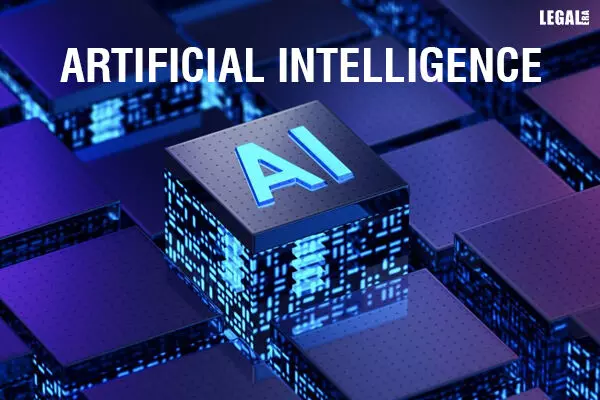- Home
- News
- Articles+
- Aerospace
- Artificial Intelligence
- Agriculture
- Alternate Dispute Resolution
- Arbitration & Mediation
- Banking and Finance
- Bankruptcy
- Book Review
- Bribery & Corruption
- Commercial Litigation
- Competition Law
- Conference Reports
- Consumer Products
- Contract
- Corporate Governance
- Corporate Law
- Covid-19
- Cryptocurrency
- Cybersecurity
- Data Protection
- Defence
- Digital Economy
- E-commerce
- Employment Law
- Energy and Natural Resources
- Entertainment and Sports Law
- Environmental Law
- Environmental, Social, and Governance
- Foreign Direct Investment
- Food and Beverage
- Gaming
- Health Care
- IBC Diaries
- In Focus
- Inclusion & Diversity
- Insurance Law
- Intellectual Property
- International Law
- IP & Tech Era
- Know the Law
- Labour Laws
- Law & Policy and Regulation
- Litigation
- Litigation Funding
- Manufacturing
- Mergers & Acquisitions
- NFTs
- Privacy
- Private Equity
- Project Finance
- Real Estate
- Risk and Compliance
- Student Corner
- Take On Board
- Tax
- Technology Media and Telecom
- Tributes
- Viewpoint
- Zoom In
- Law Firms
- In-House
- Rankings
- E-Magazine
- Legal Era TV
- Events
- Middle East
- Africa
- News
- Articles
- Aerospace
- Artificial Intelligence
- Agriculture
- Alternate Dispute Resolution
- Arbitration & Mediation
- Banking and Finance
- Bankruptcy
- Book Review
- Bribery & Corruption
- Commercial Litigation
- Competition Law
- Conference Reports
- Consumer Products
- Contract
- Corporate Governance
- Corporate Law
- Covid-19
- Cryptocurrency
- Cybersecurity
- Data Protection
- Defence
- Digital Economy
- E-commerce
- Employment Law
- Energy and Natural Resources
- Entertainment and Sports Law
- Environmental Law
- Environmental, Social, and Governance
- Foreign Direct Investment
- Food and Beverage
- Gaming
- Health Care
- IBC Diaries
- In Focus
- Inclusion & Diversity
- Insurance Law
- Intellectual Property
- International Law
- IP & Tech Era
- Know the Law
- Labour Laws
- Law & Policy and Regulation
- Litigation
- Litigation Funding
- Manufacturing
- Mergers & Acquisitions
- NFTs
- Privacy
- Private Equity
- Project Finance
- Real Estate
- Risk and Compliance
- Student Corner
- Take On Board
- Tax
- Technology Media and Telecom
- Tributes
- Viewpoint
- Zoom In
- Law Firms
- In-House
- Rankings
- E-Magazine
- Legal Era TV
- Events
- Middle East
- Africa
US Copyright Office Releases Guidelines for AI-Generated Content Registration

US Copyright Office Releases Guidelines for AI-Generated Content Registration
New guidelines on the registration of works that contain material generated by Artificial Intelligence (AI) have been published by the US Copyright Office. Additionally, the office has announced public roundtables to discuss the intersection of AI and copyright.
Generative AI has become a prominent topic in public discourse in recent months, sparking excitement, fear, and uncertainty about the promises and potential dangers of AI.
The US Patent and Trademark Office, as well as the US Copyright Office, have been trying to come to terms with the transformative impact of AI on intellectual property rights for several years.
With individuals and businesses across industries relying more and more on AI to generate content, there are significant questions that the Copyright Office, users, creators of AI technologies, and any party looking to protect and enforce original works while avoiding infringement of others' rights must address.
As part of its new AI initiative, the Copyright Office has issued crucial guidance on its examination and registration practices for works that include material generated by AI. The office has reiterated its stance that only humans can be considered "authors" under the US Constitution and the Copyright Act.
The Copyright Office explained that if an AI technology only receives a prompt from a human and produces complex written, visual, or musical works in response, the resulting work is not eligible for copyright protection under US law.
However, a work may still qualify for copyright protection if a human has authored expressive elements, such as modifying, selecting, or arranging AI-generated material.
In addition, the guidance emphasises that applicants have an obligation to disclose if a work submitted for registration includes material generated by AI and must disclaim any such material that exceeds "de minimis" use.
Applicants are also required to update pending applications and correct the public record if a registration has already been issued without the necessary disclosure and disclaimer. Failure to comply may result in the loss of registration benefits.
Authors, artists, and other creators who use AI tools to create works must be aware of the Copyright Office's registration requirements and should remain vigilant for updates related to AI and copyright.
It is worth noting that the Copyright Office has scheduled four public roundtables to be held between April and May, focusing on AI's impact on literary, visual, and audiovisual works, as well as music and sound recordings.
Moreover, the Copyright Office plans to issue a notice of inquiry to seek public input on various copyright issues that arise from the use of AI. Those with an interest in the intersection of AI and copyright should closely monitor these developments and consider contributing their views.



